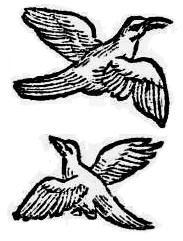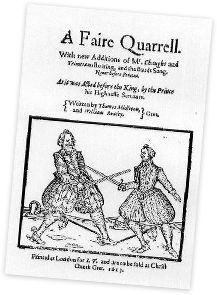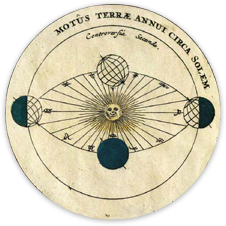You are viewing the Cultures of Knowledge Blog archive for the ‘Calls for Papers’ Category:
 The second annual Anglo-French Conference on Scientific Communication and its History will take place in Paris at the Ecole Normale Supérieure on 9–10 March 2012. The conference will explore how technological developments – from the invention of printing with movable type to the postal network, from the railway timetable to the electric telegraph, from the telephone to e-mail – have profoundly influenced the nature of scientific communication and the structure and practice of science. It will bring together scientists, historians, social scientists, and science communicators to explore the role of technologies, both physical and social, in the history and present practice of communication within and around scientific communities and between science and its various publics. The conference will be organised around four themes: print and text; correspondence; networks and gatherings; and non-print media. In each of these it will explore the interaction between technical change and communicative practice by considering examples taken from across a wide range of historical conjunctures and disciplines. Papers should be thirty minutes in length, and should fall within one of the four themes. Doctoral students are invited to give fifteen-minute papers. The deadline for 300-word proposals is 15 January 2012. For further details and submission instructions, please download the conference flyer (pdf).
The second annual Anglo-French Conference on Scientific Communication and its History will take place in Paris at the Ecole Normale Supérieure on 9–10 March 2012. The conference will explore how technological developments – from the invention of printing with movable type to the postal network, from the railway timetable to the electric telegraph, from the telephone to e-mail – have profoundly influenced the nature of scientific communication and the structure and practice of science. It will bring together scientists, historians, social scientists, and science communicators to explore the role of technologies, both physical and social, in the history and present practice of communication within and around scientific communities and between science and its various publics. The conference will be organised around four themes: print and text; correspondence; networks and gatherings; and non-print media. In each of these it will explore the interaction between technical change and communicative practice by considering examples taken from across a wide range of historical conjunctures and disciplines. Papers should be thirty minutes in length, and should fall within one of the four themes. Doctoral students are invited to give fifteen-minute papers. The deadline for 300-word proposals is 15 January 2012. For further details and submission instructions, please download the conference flyer (pdf).
The newly founded Journal of Early Modern Studies is seeking contributions for a special issue on the timely theme of ‘Shaping the Republic of Letters: Communication, Correspondence and Networks in Early Modern Europe’:
‘A well known metaphor of the early European modernity and an important instrument in the understanding of seventeenth-century thought, the ‘Republic of Letters’ was, in the sixteenth and seventeenth centuries, primarily a label for new projects of intellectual and scientific association. Various models for the Republic of Letters have been investigated and described as closed circles or open networks, shaped around a variety of elements: scientific societies, intellectual networks, formal or informal circles of intellectuals, proponents of the new and old philosophies. What all such models had in common was a an ideal of shaping communities around a moral, intellectual and sometimes a religious project understood as a reformation of the (whole) human being.
This special issue of the Journal of Early Modern Studies aims to bring together articles devoted to the investigation of such models of early modern communities governed by the ideal of the Republic of Letters. The journal is particularly seeking papers dedicated to the exploration of various ways of disseminating and communicating knowledge within the Republic of Letters, with a special focus on the exchanges between the East and the West of Europe…’
For more information please contact Vlad Alexandrescu.
 The Early Modern Center of the University of California at Santa Barbara invites paper proposals for their eleventh annual conference, Early Modern Social Networks, 1500-1800. The conference will take place on March 16-17, 2012 at UCSB, and will feature keynote speakers Ann Blair (Harvard University), Elizabeth Eger (King’s College London), and James Raven (University of Essex). Possible topics include: knowledge networks, (such as the Royal society, libraries, salons, and coffeehouses); secret societies; clubs; literary coteries; epistolary correspondents; religious communities (including sacramental practices); print and publication networks; gift communities (patronage, the ward system); trade networks (such as the East India Company, the Royal Exchange, workers’ guilds, black markets); colonial administration; infrastructure expansion (the post, turnpikes, canals); financial organizations (stock markets, insurance); and others. The deadline for abstracts of 250-500 words in length is January 6, 2012. For further details and submission instructions, see the conference website.
The Early Modern Center of the University of California at Santa Barbara invites paper proposals for their eleventh annual conference, Early Modern Social Networks, 1500-1800. The conference will take place on March 16-17, 2012 at UCSB, and will feature keynote speakers Ann Blair (Harvard University), Elizabeth Eger (King’s College London), and James Raven (University of Essex). Possible topics include: knowledge networks, (such as the Royal society, libraries, salons, and coffeehouses); secret societies; clubs; literary coteries; epistolary correspondents; religious communities (including sacramental practices); print and publication networks; gift communities (patronage, the ward system); trade networks (such as the East India Company, the Royal Exchange, workers’ guilds, black markets); colonial administration; infrastructure expansion (the post, turnpikes, canals); financial organizations (stock markets, insurance); and others. The deadline for abstracts of 250-500 words in length is January 6, 2012. For further details and submission instructions, see the conference website.
 The Electronic Enlightenment Project is currently seeking paper proposals for its second colloquium on the sociology of the letter, Epistolary Quarrels: Matter and Manner (Oxford, 19 November 2011). The colloquium provides a forum for both academics and graduate students exploring correspondence in the early modern period. The papers given by academics will be forty minutes; those given by graduate students will be twenty minutes. Conference papers can be in English or French. A selection of papers will be published electronically in the Electronic Enlightenment Project’s Letterbook. The deadline for 250-word abstracts is Friday 9 September 2011. For further details and how to submit, visit the colloquium webpage.
The Electronic Enlightenment Project is currently seeking paper proposals for its second colloquium on the sociology of the letter, Epistolary Quarrels: Matter and Manner (Oxford, 19 November 2011). The colloquium provides a forum for both academics and graduate students exploring correspondence in the early modern period. The papers given by academics will be forty minutes; those given by graduate students will be twenty minutes. Conference papers can be in English or French. A selection of papers will be published electronically in the Electronic Enlightenment Project’s Letterbook. The deadline for 250-word abstracts is Friday 9 September 2011. For further details and how to submit, visit the colloquium webpage.
 Update: Deadline extended to 18 October
Update: Deadline extended to 18 October
Paper and panel proposals are invited for Scientiae, a new interdisciplinary conference on early modern science, to be held in Vancouver, B.C. (under the auspices of Simon Fraser University) on 26–28 April 2012. According to the organizers, ‘[t]he working assumption of the conference is that interdisciplinarity is not only an option, but a necessity, for the study of early modern culture in its knowledge of the natural world. That is because period science is itself an interdisciplinary function, emerging from Biblical exegesis, advanced design, and literary humanitas; as well as from natural philosophy, alchemy, craft traditions, etc… Scientiae offers a forum for scholars of the period’s art and literature, as well as its intellectual history, to illuminate aspects of early modern science in the latter’s proper strangeness’. The deadline for proposals is 30 September 2011. For the full CFP, please visit the conference website.
The 11th Bucharest-Princeton Seminar in Early Modern Philosophy, which will take place in Bran, Transylvania on 2–8 July 2011, is currently seeking contributions. Organised by the Research Centre for the Foundations of Modern Thought (FME) at the University of Bucharest in collaboration with the Philosophy Department at Princeton University, this year’s event takes as its theme Collaborative Aspects of Early Modern Thought: Philosophical Correspondence and the Republic of Letters. The deadline for the receipt of one-page abstracts and CVs is 27 April 2011. For submission instructions, as well as details of registration, costs, and keynote speakers, please visit the seminar webpage.
 The second annual Anglo-French Conference on Scientific Communication and its History will take place in Paris at the Ecole Normale Supérieure on 9–10 March 2012. The conference will explore how technological developments – from the invention of printing with movable type to the postal network, from the railway timetable to the electric telegraph, from the telephone to e-mail – have profoundly influenced the nature of scientific communication and the structure and practice of science. It will bring together scientists, historians, social scientists, and science communicators to explore the role of technologies, both physical and social, in the history and present practice of communication within and around scientific communities and between science and its various publics. The conference will be organised around four themes: print and text; correspondence; networks and gatherings; and non-print media. In each of these it will explore the interaction between technical change and communicative practice by considering examples taken from across a wide range of historical conjunctures and disciplines. Papers should be thirty minutes in length, and should fall within one of the four themes. Doctoral students are invited to give fifteen-minute papers. The deadline for 300-word proposals is 15 January 2012. For further details and submission instructions, please download the conference flyer (pdf).
The second annual Anglo-French Conference on Scientific Communication and its History will take place in Paris at the Ecole Normale Supérieure on 9–10 March 2012. The conference will explore how technological developments – from the invention of printing with movable type to the postal network, from the railway timetable to the electric telegraph, from the telephone to e-mail – have profoundly influenced the nature of scientific communication and the structure and practice of science. It will bring together scientists, historians, social scientists, and science communicators to explore the role of technologies, both physical and social, in the history and present practice of communication within and around scientific communities and between science and its various publics. The conference will be organised around four themes: print and text; correspondence; networks and gatherings; and non-print media. In each of these it will explore the interaction between technical change and communicative practice by considering examples taken from across a wide range of historical conjunctures and disciplines. Papers should be thirty minutes in length, and should fall within one of the four themes. Doctoral students are invited to give fifteen-minute papers. The deadline for 300-word proposals is 15 January 2012. For further details and submission instructions, please download the conference flyer (pdf).

 The
The  Update: Deadline extended to 18 October
Update: Deadline extended to 18 October 
 Join
Join 